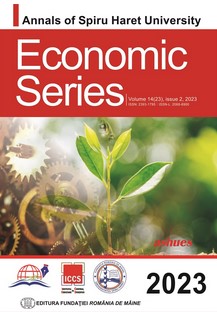INFLATION DYNAMICS IN UGANDA DURING THE POST-INDEPENDENCE ERA
INFLATION DYNAMICS IN UGANDA DURING THE POST-INDEPENDENCE ERA
Author(s): Deogratius Wenceslaus KIMOLO, Nicholaus M. Odhiambo, Sheilla NyashaSubject(s): National Economy, Economic history, Economic policy, Post-War period (1950 - 1989), Transformation Period (1990 - 2010), Present Times (2010 - today), Financial Markets, Socio-Economic Research
Published by: Editura Fundaţiei România de Mâine
Keywords: Price Level; Inflation; Deflation; Uganda;
Summary/Abstract: This article provides a comprehensive chronological analysis of Uganda's inflation performance and policy reforms aimed at reducing inflation and stabilising the economy from 1970 to 2021. The impetus for this article lies in the growing interest in Uganda as a prototype for other developing countries grappling with high inflation rates. To achieve the objective, the study adopts a rigorous methodology involving a detailed analysis of selected statistical and academic literature. Uganda faced persistent hyperinflation for much of the 1970s and 1980s and early 1990s. In response, the Ugandan government implemented a series of inflation policy reforms aimed at reducing inflation and stabilizing the economy. The policy reforms in Uganda can be analysed episodically through five distinct periods, starting with the first 10 years after independence (1962-1971), followed by 15 years of political instability (1971- 1985), 10 years of recovery (1986-1995), 10 years of economic growth and poverty reduction (1996-2006), and the most recent episode of reforms consolidation (2007-2021). The impact of these reforms has been significant, with inflation rates falling to single digits and the economy experiencing sustained growth. The decline in inflation has helped to stabilize the economy, reduce the cost of living for Ugandans, and attract foreign investment. The study underscores the importance of implementing sound macroeconomic policies, strong political will and leadership, investing in infrastructure, diversifying the economies, communicating effectively with the public, and cooperating regionally to build a robust and sustainable economy that benefits all its citizens.
Journal: Annals of Spiru Haret University. Economic Series
- Issue Year: 23/2023
- Issue No: 3
- Page Range: 119-143
- Page Count: 25
- Language: English

